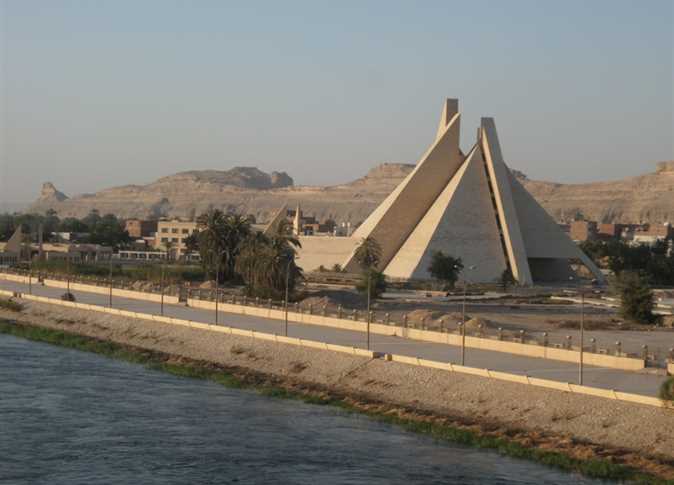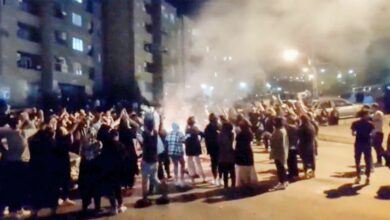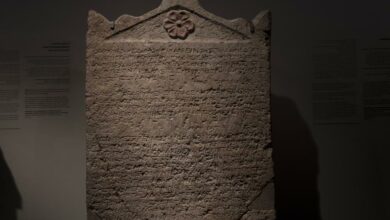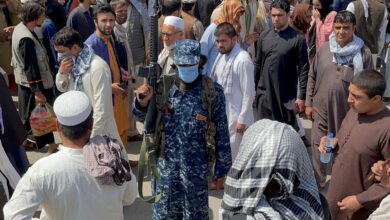On 26 February, a mob attacked the mausoleum of Mohamed Sherif Pasha in Cairo’s Al-Sayeda Naffissa district, looting its entire store of antique furniture and artifacts at an estimated value of LE8 million. The mausoleum has a rich history, and contained many artifacts vital to Islamic researchers. With all of it now in the hands of looters, its fate may bode poorly for the future of Egypt’s antiquities.
A descendant of an Ashraf family from Hijaz, Cherif Pasha (1828-1887) was the author of Egypt’s first Constitution. After his reappointment as the prime minister of Egypt, with the fall of the Noubar Pasha government, Cherif Pasha’s first decision was to present a Constitution to the parliament, granting it sole legislative rights for the first time.
Cherif Pasha served as prime minister four times between 1866 and 1884, when he resigned in disapproval of the Egyptian abandonment of Sudan due to British pressures. Cherif Pasha was also part of the fourth student mission to Paris between 1844 and 1849 as well as a founding member of the Helwan Club, which became the al-Watan party.
The mausoleum in his memory was built by his wife, Nazlah Hanem Cherif–the daughter of the Commanding General of the Egyptian army under Khedive Abbas, Soliman Pasha–in neo-Mamluke style. Its construction, which began in 1885, took four years.
Since 1953, the Egyptian Ministry of Awqaf has administered the mausoleum building along with an endowment of 25 feddans, when all charitable endowments were placed under the ministry’s administration by a government decree. The ministry’s inventory included an Ottoman style silver candlesticks, candelabra, coffee pots and trays, Syrian ivory and arabesque tables, calligraphic scrolls by Cherif Pasha and a handwritten illuminated copy of the Quran.
The building and its belongings remained the private property of the family. Within a few years, the mausoleum building was registered as an antiquities site by the Supreme Council of Antiquities, yet the furniture and family belongings remained the responsibility of the Ministry of Awqaf. In 1995, an antiquities inspector suggested transforming the mausoleum into a museum, describing it as a “secret antiquities cache,” according to Mahmoud Sabit, a banker and the legal trustee of the mausoleum, which belonged to his great grandfather.
“In addition to the monetary value of the artifacts, they are part of Egypt’s Islamic cultural heritage,” Sabit explained. "The mausoleum of Mohamed Cherif Pasha was one of the very few mausoleums that still had their complete original furnishing. The artifacts and the setup can offer insights to Islamic scholars and researchers."
In the past ten years, various artifacts have been reported missing. In 2004, the illuminated copy of the Quran was replaced by incomplete copies of various folios, and the investigating Awqaf committee informed Sabit that the inventory did not specify that the Quran was handwritten or illuminated. An Awqaf inspector told Sabit that “one Koran was as good as another.” A police report was filed, yet investigators concluded that no wrongdoing had occurred. This encouraged Sabit to create a complete photographic archive of the items in the mausoleum.
But Sabit’s attempts to conduct the required restoration of the artifacts were rejected by the Ministry of Awqaf on the grounds of lack of funds, even though the rental of the 25-feddan endowments was supposed to provide money. In 2008, various items, including the handwritten calligraphic scrolls, were removed from the mausoleum by the Higher Council of Islamic Antiquities, and Sabit still does not know their whereabouts. In 2009, he presented a complete report of the missing items–in which he also explained how the Awqaf profited by renting mausoleum rooms–to the Supreme Council of Antiquities, but received no response.
Last month’s looting dealt a final blow to his efforts. However, Sabit filed a report at the Khalifa Police station and demanded the interrogation of the guard, who allegedly left the site unprotected on the night of the looting. In the state of lawlessness that Egypt is experiencing and the resistance to fully deploy police forces, it seems likely that the looting of archaeological sites and artifacts will, unfortunately, continue.




